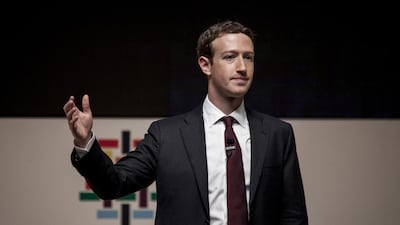The past year was one of upheaval, shock and disappointment.
Politically, Donald Trump’s election and the success of the Brexit movement were largely unexpected populist shifts against liberalism and the effects of globalisation.
Culturally, the deaths of iconic musicians including David Bowie, Prince, Leonard Cohen and George Michael left many fans devastated. There’s no doubt: 2016 was tough for many people on many levels.
Underpinning these events were the technological networks that allowed leaders, followers, fans and commentators to share developments, opinions, commiseration and, of course, arguments.
It’s these disagreements that formed the core of the biggest technology story of 2016, a year in which the dark side of social media could no longer be ignored.
Years in the making, online echo chambers and hatred-driven pile-ons came roaring up into everyone’s faces.
Heading into 2017, several social media networks are now facing existential questions as a result. What are their larger societal responsibilities? Do their benefits outweigh their negatives? Can they survive in their current forms?
As ground zero for the fake news epidemic, Facebook in particular had a rough 2016. Disinformation artists exploited the social network's biggest weakness – that many users associate primarily with like-minded groups and individuals – to effectively spread lies and political propaganda.
The misinformation ranged from the innocuous – false stories about celebrities moving to certain small towns – to full-blown attempts at altering the course of history.
A story in early November about a mysterious murder-suicide involving an FBI agent linked to Hillary Clinton’s leaked emails, for example, was one of many efforts at swaying public opinion by subtly implicating the US presidential candidate.
That one particular story, which proved to be false, was shared more than half a million times on Facebook and generated considerably more traction than many real news stories.
Facebook is facing a credibility crisis as a result. Its co-founder and chief executive Mark Zuckerberg has been dismissive of the role his company plays in political events as well as the larger notion that Facebook is a media entity. Reports suggest several executives have left the company over an internal schism on these issues.
Despite that, the company is in the process of creating filters to detect and block supposed fake news and is hiring human editors to oversee larger trending items.
It may not be enough, though, as the problem appears to lie within the very core of how the network functions. With algorithms detecting what users like and literally serving them up more of the same, Facebook may have to change how it fundamentally works if it is to fix the echo chamber problem that allows disinformation to thrive.
Twitter’s year was no better. The company experienced an expansion of its epiphanic GamerGate moment, started in 2014, where widespread harassment led many women video game personalities to abandon the service.
The larger spillover effect and the company’s staunch insistence that it is a free speech platform has resulted in stagnant growth and declining usage, executive turnover, layoffs and the shuttering of the Vine video function this year. The harassment problem was no less acute in 2016. Mr Trump, for one, spurred venomous pile-ons against his numerous enemies, such as in March when his angry tweets about TV host Megyn Kelly prompted thousands of abusive comments.
Twitter spent most of 2016 looking for a buyer and attracted the likes of Verizon, Salesforce and even Disney. But all of the potential suitors ended up walking away, reportedly because of the image problem. No one, especially Disney, apparently wanted to be associated with a platform that lets users vent anger and hatred on each other with few controls or repercussions.
Apparently getting the message, Twitter rolled out improved mute functions toward the end of the year that let users avoid certain words or phrases. It’s an ironic development, since allowing users to see more of what they want and less of what they don’t inevitably sets the service down the same echo chamber hole that Facebook now finds itself in.
Like its fellow social network, Twitter and the way it works may be fundamentally flawed at its core, with no apparent solution.
Whether either company can recover and restore users’ faith is an open question but if the past year has taught us anything about social media, it’s that it is every bit as susceptible to the same problems and dark abuses as its traditional media counterparts.
A few years from now, we may look back on 2016 as the year that social media peaked or even began a terminal decline.
Winner of the Week: Canada
The country’s telecom regulator has declared internet access a basic service, where all Canadians should be able to get download speeds of at least 50 megabits per second, uploads of 10 Mbps – and unlimited monthly usage.
Loser of the Week: Apple
For the first time, Consumer Reports is refusing to recommend Apple's new MacBook Pro laptops because of tests showing inconsistent battery life. The company disputes the findings but will be hard-pressed to counter the respected non-profit publication.
Peter Nowak is a veteran technology writer and the author of Humans 3.0: The Upgrading of the Species.
business@thenational.ae
Follow The National's Business section on Twitter

